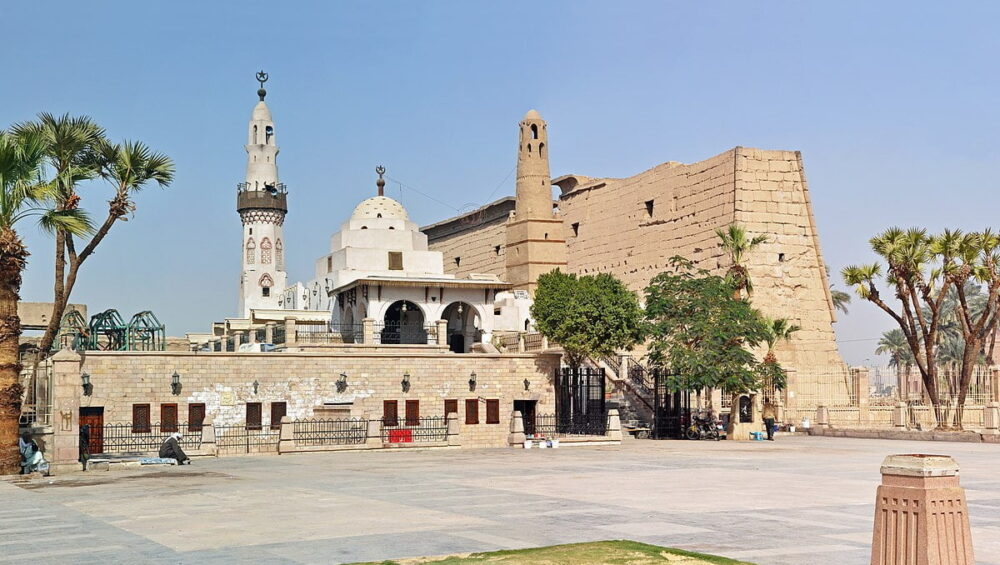Most Egypt travel packages feature a visit to the Abu Haggag Mosque, an essential part of the Luxor Temple complex on the east bank of Luxor. Although the ruins of Luxor Temple are not extensive, they are significant enough to make it one of Luxor’s top attractions. Visitors to the Luxor Temple invariably encounter the Mosque, which is open to non-Muslim guests, allowing them to explore freely.
The presence of the 13th-century Abu Haggag Mosque, still an active place of worship, enriches the experience of visiting Luxor Temple.
Surrounded by the ancient temple’s remnants, this medieval mosque is a sight to behold. If you admire it in daylight, consider returning at night to witness it illuminated during the temple’s spectacular sound and light show.
History of the Abu Haggag Mosque
Luxor Temple, originally a worship center, was partly ruined before the construction of the Abu Haggag Mosque. Before the mosque, several churches were built around the temple, with one still present today. The site’s history as a multi-religious worship center for over 3,500 years is one of its most remarkable aspects.
Local legends attribute the mosque’s construction to Youssef Abu Haggag, a figure who played a pivotal role in spreading Islam in the region and caring for pilgrims, earning him the nickname ‘Father of Pilgrims’ (Abu Haggag). Despite popular belief, it’s unlikely that Youssef himself built the temple.
The Legend of Abu Haggag
Yousef believed to be born in Damascus in 1150, moved to Mecca in his forties and eventually settled in Luxor, Egypt, where he lived until 1245.
According to local folklore, Yousef Abu Haggag built his mosque within Luxor Temple’s first courtyard and resisted officials’ attempts to demolish it. Despite his efforts, officials planned to tear it down. Miraculously, one official became paralyzed on the morning of the planned demolition, leading to a belief that his condition was a divine response to the dispute over the mosque’s demolition.
The officials then reversed their decision, allowing the mosque to remain. Since then, Abu Haggag and his mosque have held a special place in the hearts of Luxor’s residents.
Moorid and Abu Haggag in Egypt
Moorids in Egypt celebrate saints’ birthdays, both Muslim and Christian. While not all are widely observed, they remain popular traditions. Some, like Moulid El Nabi commemorating the Prophet’s birth, are nationwide celebrations. Others, such as Abu Haggag’s Moorid in Luxor, are local, occurring annually in early November.
The colorful and lively Moulid of Abu Haggag is an event that joyfully merges religion and entertainment. It’s eagerly anticipated each year, with many locals saving up just to participate in the festivities and the procession. The best time to visit the Abu Haggag Mosque is during these celebrations, offering a unique opportunity to experience authentic Egyptian customs and traditions. These events, though open to guests, are not tailored for tourists, offering a genuine glimpse into local life.




